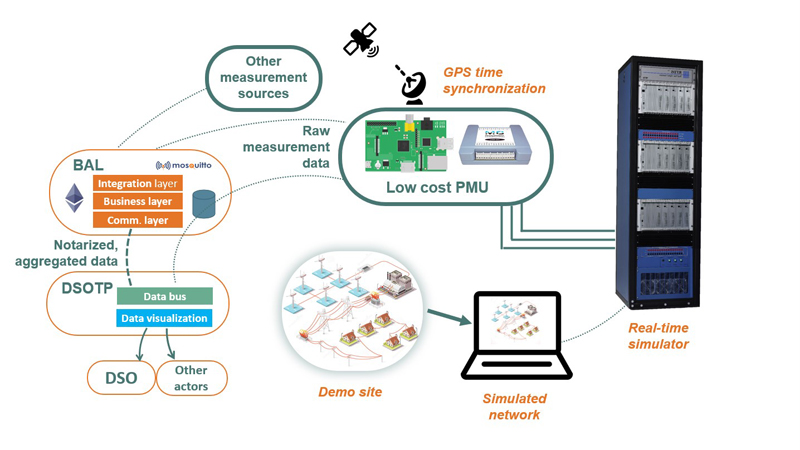
As the components of the Platone Open Framework were incrementally developed, three corresponding drops of the reference implementation were produced. The first versions of Platone framework components of Blockchain Access Layer (BAL) and DSO Technical Platform (DSOTP) have been integrated in the setup with a real-time simulator for power systems and with an SMU prototype. The test system included components being hosted in RWTH laboratory in Aachen, Germany and in the laboratory of Engineering (ENG) Ingegneria Informatica S.p.A. in Rome, Italy. Following the incremental development approach, the above-mentioned components and the corresponding tools and services such as the data management tool of BAL and flexibility management service of DSOTP have been tested by RWTH and ENG. All these activities lead to the final delivery of the Platone Open Framework prototype while ensuring the secure exchange of data and interoperability among its components.
With respect to SMU developments, the laboratory tests conducted on the software and hardware of the SMU in RWTH laboratory in parallel to the installation and commissioning activities at the German and Greek demonstration sites lead to a series of updates, which eventually enhanced the TRL of the SMU prototype. In particular and following the installation in the field, RWTH assumed responsibility for the upkeep of the SMU devices. This included supplying software updates, performing essential configurations for subsequent installations, and refining the configuration of the installed devices. This refinement aimed to facilitate the direct transmission of necessary Common Information Model Extensible Markup Language messages from the SMU to the subsequent layers of the Platone platform. Additionally, a private MQTT broker was set up at RWTH laboratory to allow the subscription to the SMU data, the visualization of the data in DSOTP, and for testing purposes.